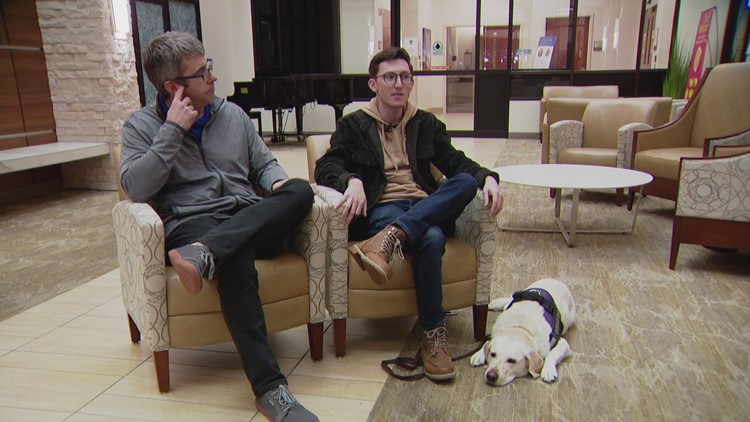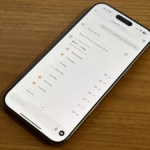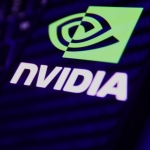[ad_1]

Over the past four years, Bryan Jump and Jared Ediger have become close friends. The pair were brought together because Jump, 28, got seriously sick.
DENVER — It’s a strange way to make a friend.
One person was diagnosed with a rare form of pancreatic cancer. The other was assigned to help guide him through it.
Their friendship, started inside AdventHealth Porter, is now continuing far beyond the hospital halls.
“It’s been nice to have someone who I never really questioned whether he believes that I can make it through this,” Bryan Jump said.
Over the past four years, Jump and Jared Ediger have become close friends. The pair were brought together because Jump, 28, got seriously sick.
“It progressively got worse and worse and worse,” he said.
After weeks spent testing and scanning, searching for answers, finally they had a diagnosis.
“It came back positive for a really rare form of pancreatic cancer,” Jump said. “Knowing what it was meant we had a way to approach it. But also that’s like a really traumatic diagnosis, especially in your 20s. You don’t expect in your 20s to be diagnosed with a probably lethal form of cancer.”
The kind of cancer Jump had was serious and rare.
“I was told that nobody survives this cancer, really,” he said. “As far as I’m aware, nobody on record has ever made it more than eight years past diagnosis with this disease.”
His health was declining quickly. So doctors got to work.
“So they actually removed my entire pancreas, my gallbladder, my spleen and 45 lymph nodes going from my belly button up to my throat,” Jump said.
Soon after that diagnosis, he got a call from Ediger, his oncology nurse navigator.
“Really just like from the beginning, Jared has really been a blessing,” Jump said.
Ediger’s job is to help patients like Jump navigate through their diagnosis, talk through treatments, and answer any questions they have.
“At the time, there were so many barriers with COVID and his young age that I felt, I feel, like he needed a little more coaching to deal,” Ediger said. “I just think there’s a lot thrown at you.”
COVID-19 had halted support groups and slowed resources. Unable to bring anyone besides his diabetic alert dog, Lily, in for chemo, Jump was isolated.
“When some of those resources weren’t available, Jared made himself available,” Jump said.
Meeting at treatments or for coffee, or even just chatting on the phone, the two began opening up.
“He really has been available and willing to talk with me through everything that I’m experiencing – the trauma, the depression, the anxiety of it returning, all of those emotions,” Jump said.
“We’ve developed a pretty tight bond,” Ediger said.
“Both of us being willing to allow the other person into the friendship and to be vulnerable with each other. And I’ve never felt like I’m an inconvenience or a burden to Jared,” Jump said.
“You know, now that you’re more in the healthy mode, it’s like OK, I’m ready to move on with life, but what do I do now? And I think he knows what to do. Sometimes I just help him explore that,” Ediger said.
Years after the diagnosis, Jump’s health is slowly improving, and the conversations between the pair are changing.
“We gotta get him back in the dating world maybe a little bit, too, on the side,” Ediger said.
Both said they’re grateful for what their friendship still has in store. Together, both treasure every moment and milestone along the way.
“I think knowing that those relationships could come to an early end make them that much more valuable and beautiful,” Jump said.
Now, both have their eyes on the future, looking forward to celebrating when Jump hits the five-year mark and can be officially considered cancer free.
SUGGESTED VIDEOS: Feature stories
[ad_2]
Source link




